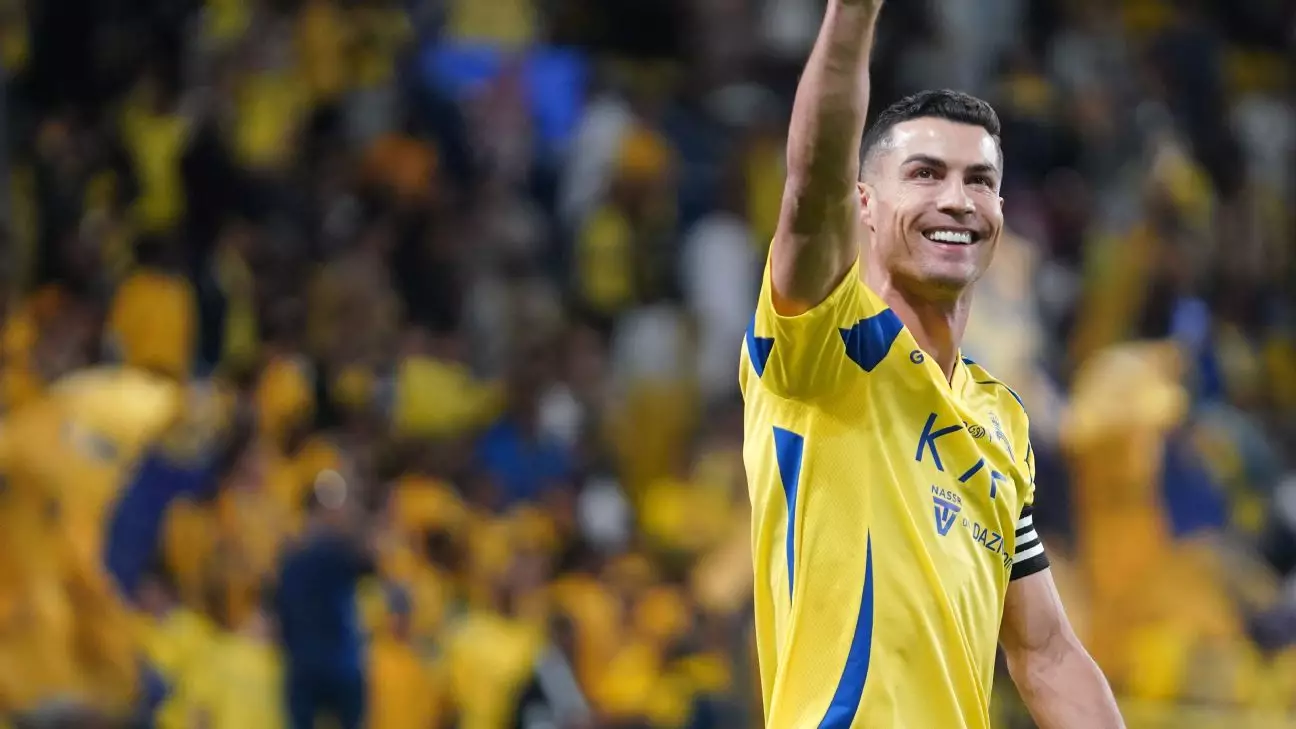Cristiano Ronaldo, one of football’s most legendary figures, recently spoke out regarding the current turbulence at Manchester United, a club he holds dear. His comments not only reflect his personal sentiments but also shed light on broader issues surrounding management and accountability within football teams. As United navigates a rocky phase, with new manager Ruben Amorim facing mounting pressure after a disappointing start, Ronaldo believes that the problems lie deeper than mere coaching strategies.
Amorim’s tenure at Manchester United has been marred by challenges, with five losses out of ten matches marking his leadership so far. As he gears up for a crucial clash against Newcastle United, his future hangs in a precarious balance. Herein lies the crux of Ronaldo’s argument: the issues plaguing the club stem from a systemic inadequacy rather than Amorim’s competency. Reflecting on the demanding nature of the Premier League, Ronaldo emphasized that its competitive landscape makes victories far from guaranteed. This toughness is exacerbated by issues that transcend individual matches or managerial decisions — a reality that often goes unacknowledged by fans and pundits alike.
The analogy Ronaldo uses compares the club to an aquarium, where existing issues can persist despite isolated fixes. He insinuates that simply removing a problematic element (like changing coaches) won’t erase the underlying problems pervading Manchester United’s operations. This metaphor encapsulates the urgency for a holistic approach to reforming the club’s framework. Thus, when Ronaldo asserts that the core issues can’t be addressed solely by changing the coach, it becomes apparent that he perceives a need for deeper, structural adjustments.
Ronaldo’s ambitions extend beyond the pitch; he hinted at aspirations of owning a football club in the future. While he firmly dismissed the idea of ever becoming a head coach or president, the notion of ownership seems to resonate with him. This ambition symbolizes his desire to influence football in a way that transcends playing, allowing him to remove the impediments he identifies from a position of power. His mention of needing the “right opportunities” suggests foresight, but it also raises questions about his intentions and whether he sees ownership as a viable route to remediating clubs’ existing challenges.
He stated his belief that if given the reins, he would implement significant changes designed to streamline operations and elevate standards at the club. Ronaldo’s contemplations suggest a desire not only to rectify Manchester United’s troubles but also to resonate with other clubs facing similar issues. The weight of ownership would bestow an opportunity to reshape football environments, similar to how he reshaped expectations and records during his illustrious career.
Referring to the Glazer family, Ronaldo has been vocal about his past grievances concerning club ownership, emphasizing their lack of concern for Manchester United’s welfare. This frustration is not merely anecdotal; it echoes a larger sentiment shared by many supporters and critics alike. His insistence that “the problem is much more than that” aligns with a growing narrative that ownership practices must evolve to foster environments conducive to success.
In light of Sir Jim Ratcliffe’s involvement with INEOS to oversee football operations, questions surrounding accountability become increasingly paramount. Can any meaningful transformation occur without addressing ownership structures? Ronaldo appears skeptical, hinting at a long-lasting malaise affecting the club.
As Ronaldo received the title of Best Middle East Player of 2024, he remains a figure of immense influence. His enduring attachment to Manchester United shines through his optimistic wishes for the club’s future, despite current challenges. He recognizes that storms pass, and the sun is bound to rise again, projecting a sense of hope that United can emerge from its present difficulties.
Ronaldo’s insights provide a multifaceted perspective on Manchester United’s struggles — one that delves into the necessity of addressing ownership, the intricacies of managerial expectations, and the competitive nature of football today. Ultimately, Ronaldo’s words resonate with supporters and players alike, forging a deeper conversation about the foundation of success in the world’s most beloved sport.

